There are a lot of progression walls when trying to progress Saga or Legacy of Heroes and they can generally be scaled in one of three ways:
- Changing your team composition to fit the stage,
- Grinding levels elsewhere,
- Manually upgrading your heroes.
The first two are pretty self-explanatory, but the third is a little more complex.
Here we’re going to go over the various ways you can improve your characters in ArcheAge Begins and how you can get the materials to do so, just to take the thinking part out of the whole thing. But before we get to that…
Grinding levels
Just to preface: Your heroes’ levels cannot exceed your own level.
With that out of the way…
You can choose to either pump your heroes up at the Library at a high gold cost or you can take them into battle to get that precious XP. The Library is nice, but the costs get so high it ends up becoming easier in the long run just to have your lower level heroes grind than eat your gold.
You should choose your current grind level based on boss stats and the materials you need. When grinding, you want to set the game to auto-repeat — which in turn gives you time to step away, perhaps for hours.
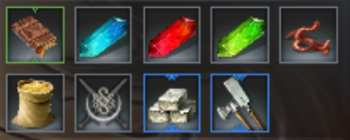
Fragments used to upgrade and craft equipment (which we’ll get to soon) can be obtained from every stage, though not every stage drops every fragment. The pattern below can be observed in every chapter (as far as I know):
- Act 1 – Weapon fragments, worms and feed, and runes
- Act 2 – Armor fragments, worms and feed, and runes
- Act 3 – Accessory fragments, worms and feed, and runes
- Act 4 – Weapon fragments, worms and feed, and runes
- Act 5 – Weapon, armor, and accessory fragments; ancient library books, worms and feed, gear crafting material, and building materials
- Act 6 – Accessory fragments, worms and feed, and runes
- Act 7 – Weapon fragments, worms and feed, and runes
- Act 8 – Armor fragments, worms and feed, and runes
- Act 9 – Accessory fragments, worms and feed, and runes
- Act 10 – Weapon, armor, and accessory fragments; ancient library books, worms and feed, gear crafting material, and building materials
 But you may need hero materials to learn talents instead (something else we’re going to get to) of equipment fragments or any of the items listed above. These can be farmed in Legacy of Heroes stages.
But you may need hero materials to learn talents instead (something else we’re going to get to) of equipment fragments or any of the items listed above. These can be farmed in Legacy of Heroes stages.
While you get miscellaneous hero material pieces from running Legacy of Heroes stages, you’ll only get hero pieces for the heroes you use during the run — and this also applies when sweeping. If you can’t take a hero you want to level to a particular Legacy of Heroes stage due to the boss strengths, you will have to grind its levels in Saga. Sweeping grants no XP, after all.
So now that we’ve gotten that out of the way, let’s get to manually upgrading your heroes.
Upgrading your heroes up to snuff
There are a few ways to upgrade your heroes. We’re going to go over what they are and how you get the materials for each of them, even if it is a bit of rehashing of the above, so you know how to approach all of this without missing a beat.
There are 4 factors that affect a character’s combat power and overall usefulness:
- Level
- Runes
- Gear
- Talents
We just went over getting levels, so let’s go over the basics of the other four aspects.
Runes
Good runes are hard to come by, and most of what you get for a long time are regular ol’ grey runes. These will do the job at early levels, but higher grade runes have additional stat bonuses on leveling that make them much more worth the slot usage.
I recommend equipping grey runes on heroes you use as they get them, just for the little stat bumps.
Leveling up runes requires two materials: Rune Powder and Rune Level Up Scrolls.
Rune Power can be obtained via either dismantling runes or via Tokens; Rune Level Up Scrolls can be obtained via raids as well as Tokens. Don’t bother leveling up grey ones.
Even past all this, sets of runes in particular shapes grant varying stat bonuses. This is something to bear in mind at all stages of the game.
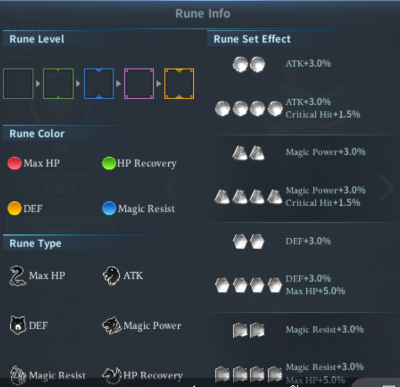
Now, something very important to keep in mind is that there are two ways to remove a rune from a hero. You can either unequip the rune, which requires a Rune Removal Scroll (obtained via Tokens); or you can destroy it, which costs nothing.
Gear
This is the most obvious corner to the whole “upgrading your hero” thing because it’s right there in your face when you open them in Hero Management.
You can only upgrade your heroes’ gear up to their current level, much like they themselves can only be leveled up to your level.
Every 20 levels or so you hit a plateau with your current equipment and have to upgrade it. The first plateau will come at level 20 exactly, and the material required is Illustrious Energy, which can be farmed at the acts listed above that include “gear crafting material”.
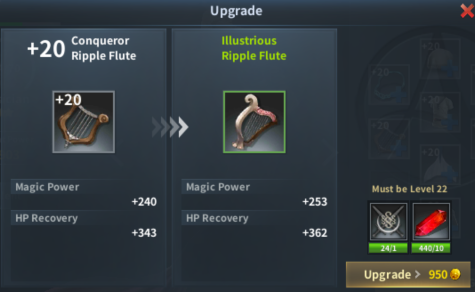
Try to keep your equipment levels up to or near your hero levels, and don’t be shy with your material grinding to make it happen.
Talents
These are definitely the most exciting/fulfilling aspects to improving a hero because new skills (and upgrading skills) is always exciting. You can view a hero’s talent tree in the Hero Management menu by tapping the ‘Talent’ button.
Learning talents is your one method of learning new active skills and granting large stat increases, so auto-repeating at the Legacy of Heroes for materials is a pretty common place to grind out hero levels.
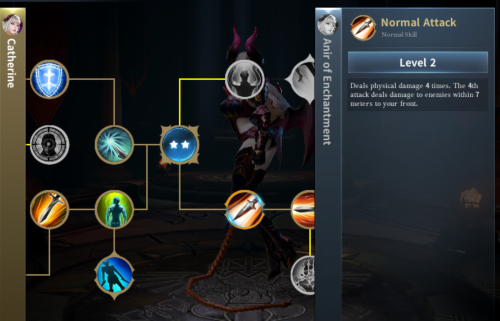
The materials for talents become increasing complicated as you push a hero past rank 1 and into ranks 2, 3, and so on. You’ll be getting components to material from the Legacy of Heroes rather than the material itself.
Because getting all of the required materials can take so long, I do recommend the occasional purchase of the Hero Material Box (10 +1) from the Shop every so often. These grant both material components and materials themselves, which can save you a great deal of time grinding.
Later on, players will be able to evolve heroes to further increase their capabilities, but that is something I’ve yet to see anyone achieve.
—
Hopefully this overview of the game’s hero improvement systems will make it easier for you to improve your teams and push through Saga and Legacy of Heroes modes with ease. There’s no reason to stress over having trouble progressing! Just alter your team composition for the situation, or buff your heroes up with the systems highlighted here.
If you found this guide useful, check our our other ArcheAge Begins guides here on GameSkinny!

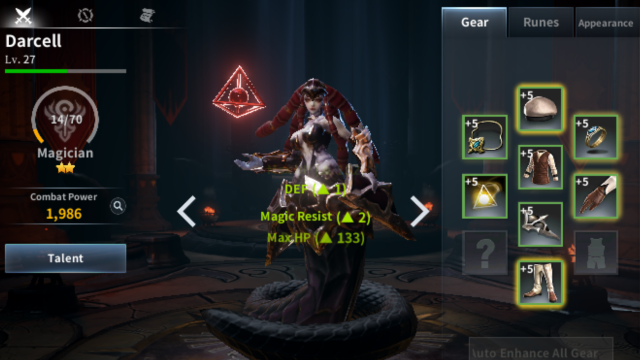
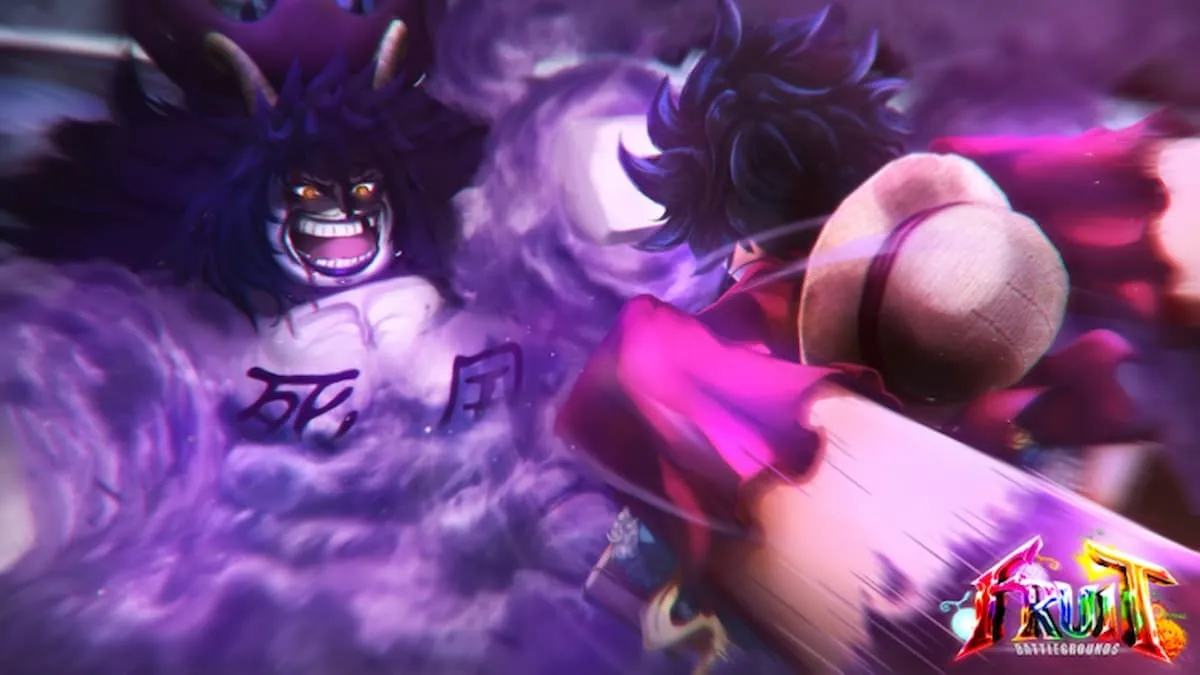
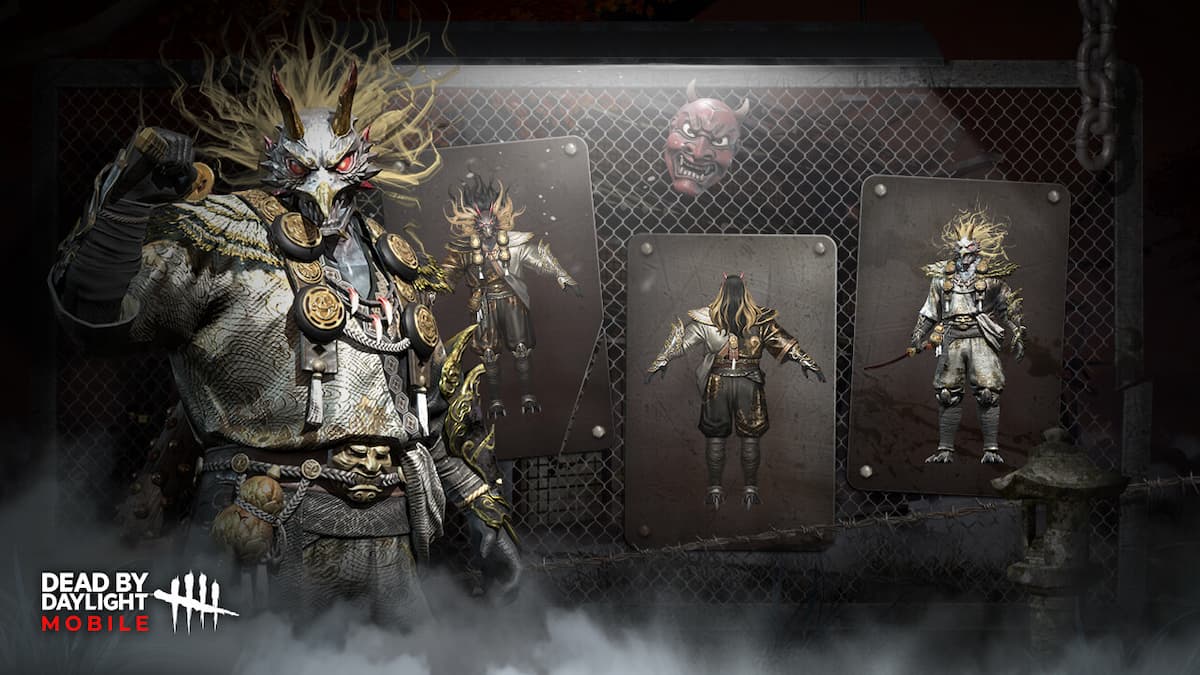



Published: Oct 31, 2017 02:37 pm